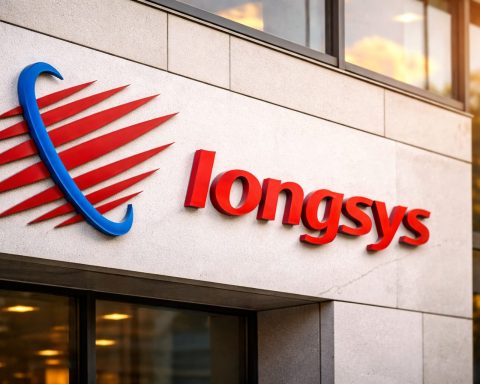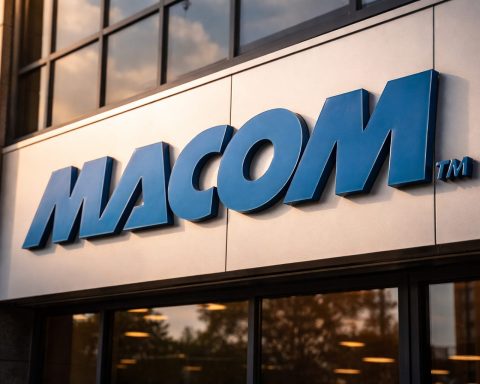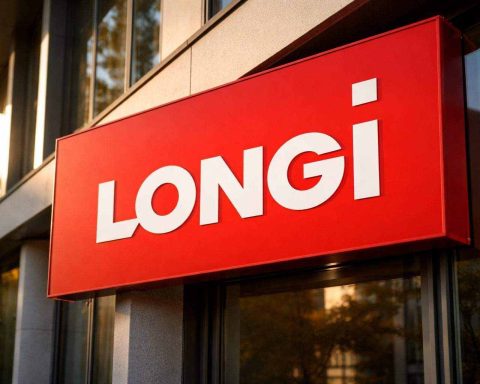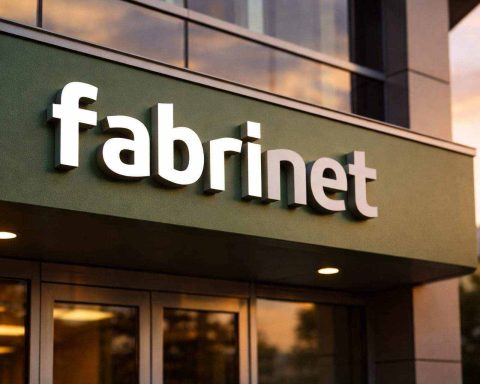- The first quantum computer in space is now operational in Earth orbit, launched on June 23 as a compact photonic device about 3 liters in volume that consumes roughly 10 watts, led by Philip Walther of the University of Vienna.
- On July 30, D-Wave Quantum unveiled a plan to scale to 100,000 qubits through advanced cryogenic packaging leveraging NASA JPL know-how to interconnect multiple chips for fluxonium-based gate-model qubits and next-generation annealers.
- IonQ and Oak Ridge National Laboratory demonstrated a hybrid quantum-classical approach to unit commitment for a power grid, using IonQ’s 36-qubit Forte ion-trap system to schedule 26 generators across 24 hours as part of the DOE GRID-Q program.
- Classiq secured SoftBank Vision Fund 2 investment, an eight-figure undisclosed sum, as part of expanding its Series C alongside CDP Venture Capital.
- Keysight Technologies delivered the world’s largest commercial quantum control system capable of coordinating over 1,000 superconducting qubits to Japan’s National Institute of Advanced Industrial Science and Technology (AIST) for the G-QuAT Center.
- SuperQ Quantum Computing was named an exclusive corporate partner of the IEEE Computer Society, joining seven partners, with collaboration on quantum education and participation in IEEE Quantum Week 2025.
- Quantum.Tech Europe 2025 in Rotterdam (Sept. 29–Oct. 1) announced an expanded agenda with eight content stages, including a Quantum Boardroom track for CEOs and pre-conference cryptography and AI workshops.
- On July 31, the U.S. Senate introduced the National Quantum Cybersecurity Migration Strategy Act, led by Senators Peters and Blackburn, to migrate federal systems to post-quantum encryption and run agency pilots.
- A Keyfactor survey of 450 cybersecurity leaders found 48% not prepared for post-quantum threats, 42% actively addressing risks, with barriers including a shortage of skilled personnel and unclear standards.
- SoftBank’s evaluation of Classiq’s platform noted that it automatically generates optimized quantum circuits and validated its potential to deliver performance gains.
From the first quantum computer in space to new funding fueling the industry, the past two days have delivered a whirlwind of quantum computing developments worldwide. Here’s a comprehensive roundup of all the notable quantum news from July 30–31, 2025, spanning breakthrough research, corporate moves, government action, and expert insights.
First Quantum Computer in Orbit
A quantum computer has literally reached new heights. Scientists confirmed that the first quantum computer in space is now operational in Earth orbit sciencenews.org. Launched on June 23 as a compact photonic quantum device about the size of a mini-fridge (3 liters in volume), it uses only ~10 watts of power – a far cry from the power-hungry, room-sized lab setups typical on the ground sciencenews.org. Project lead Philip Walther of the University of Vienna reported the hardware is up and running, with demonstrations of its capabilities coming next sciencenews.org. The feat shows quantum computers can function under the extreme conditions of space, opening the door to future quantum satellites for secure communication and off-planet computing. “Being the first here also means we have the duty and privilege to investigate if things operate in space the way we’re used to on the ground,” Walther noted, hinting at fundamental physics experiments to come 1 .
D-Wave Targets 100,000 Qubits with New Cryogenic Packaging
Industry pioneer D-Wave Quantum announced a major R&D initiative to dramatically scale up its quantum processors dwavequantum.com. Unveiled July 30, the plan focuses on advanced cryogenic packaging techniques – leveraging know-how from NASA’s Jet Propulsion Lab – to interconnect multiple chips and control a huge number of qubits at ultra-low temperatures dwavequantum.com dwavequantum.com. D-Wave, which uniquely builds both annealing and gate-model quantum computers, aims to maintain its edge in superconducting processor tech and “accelerate [our] cross-platform technology development… on the path to 100,000 qubits,” said Dr. Trevor Lanting, D-Wave’s Chief Development Officer dwavequantum.com dwavequantum.com. The work includes adopting JPL’s superconducting “bump-bond” process to link chips with fully superconducting interconnects, a method D-Wave believes is key to scaling up fluxonium-based gate-model qubits and next-gen annealers dwavequantum.com. In short, high-performance packaging is now seen as essential for pushing quantum systems to hundreds of thousands of qubits – and D-Wave is investing heavily to get there 2 .
IonQ and ORNL Achieve Quantum Power Grid Optimization
IonQ revealed a new milestone applying quantum computing to real-world energy problems. In partnership with Oak Ridge National Laboratory (ORNL) and the U.S. Dept. of Energy, IonQ demonstrated that a hybrid quantum-classical approach can tackle the notorious “unit commitment” problem for electric power grids investors.ionq.com. Using IonQ’s 36-qubit Forte ion-trap quantum system integrated with classical computing, the team optimized scheduling for 26 power generators across 24 hours – a complex task of deciding which power plants to run when investors.ionq.com investors.ionq.com. While still a small-scale test, it’s proof that quantum methods can handle grid optimization scenarios that grow exponentially hard for classical algorithms. “This demonstration marks a significant milestone in applying quantum computing to real-world energy challenges,” said IonQ CEO Niccolo de Masi, who noted that as IonQ’s systems scale to “thousands and millions of qubits,” they expect to solve grid challenges beyond classical reach investors.ionq.com. ORNL’s quantum team lead Suman Debnath added that the experiment showed the feasibility of using IonQ’s device for grid problems, and ongoing research will test for quantum advantage as hardware improves investors.ionq.com. The project is part of DOE’s multi-year GRID-Q program, positioning energy grid management as a prime early use-case for quantum computing 3 .
Classiq Lands SoftBank Investment to Fuel Quantum Software
Israel-based startup Classiq, a leading quantum software platform provider, has scored a significant funding boost to expand its mission. On July 30 the company announced that SoftBank’s Vision Fund 2 is investing an undisclosed sum (estimated in the eight figures) as part of an expansion of Classiq’s Series C round, alongside Italy’s largest VC fund, CDP Venture Capital globenewswire.com. This strategic influx comes just months after Classiq raised $110M in May, and it brings SoftBank’s considerable weight into the quantum software arena. “SoftBank and CDP Venture Capital bring bold, long-term perspectives to deep tech,” said Classiq CEO Nir Minerbi, “Their support reflects a strong belief in Classiq’s mission to unlock quantum computing for real-world applications” globenewswire.com. SoftBank’s R&D team had conducted an in-depth technical evaluation of Classiq’s platform, which automatically generates optimized quantum circuits, and validated its potential to deliver performance gains on today’s hardware globenewswire.com. The new capital will fuel product development and global partnerships across finance, pharma, telecom and more globenewswire.com. The move is a vote of confidence in quantum software as a critical piece of the ecosystem, ensuring that as quantum hardware scales, enterprises will have the tools to actually program useful applications 4 .
Keysight Deploys 1,000-Qubit Control System in Japan
A major step toward larger quantum computers came from the test-and-measurement world. Keysight Technologies announced it has delivered the world’s largest commercial quantum control system to Japan’s National Institute of AIST, capable of orchestrating over 1,000 superconducting qubits quantumcomputingreport.com quantumcomputingreport.com. The control system – essentially the “nervous system” that converts classical instructions to the microwave pulses that drive quantum processors – has been integrated into AIST’s new G-QuAT research center as part of a next-gen quantum testbed quantumcomputingreport.com. Extensive engineering was done to ensure timing, noise, and phase coherence across the hundreds of control channels, allowing precise synchronized operations on a large array of qubits quantumcomputingreport.com. Keysight touted that this makes them “the first commercial control system vendor” to support 1000+ qubits, a level needed for future large-scale quantum machines quantumcomputingreport.com. AIST deputy director Dr. Masahiro Horibe said the system will accelerate quantum R&D by providing a stable platform for experimenting with high-qubit-count processors quantumcomputingreport.com. This public-private effort (Keysight is U.S.-based, AIST is Japan’s tech institute) underscores the global drive to scale up quantum computing infrastructure, even as actual qubit devices lag behind – laying groundwork so that when quantum chips reach kiloscale qubit counts, the control electronics are ready to go.
SuperQ Joins Elite IEEE Partnership Program
In Canada, startup SuperQ Quantum Computing Inc. made waves with an announcement on July 31 that it has been named an exclusive corporate partner of the IEEE Computer Society thenewswire.com. This partnership puts SuperQ – a smaller quantum/supercomputing-as-a-service firm – in the company of industry titans like Apple and AWS as one of only seven such partners in the IEEE program thenewswire.com. The tie-up is more than symbolic: SuperQ will collaborate with IEEE on quantum computing education and outreach initiatives, including prominent involvement in IEEE Quantum Week 2025 this fall thenewswire.com. SuperQ’s CEO, Dr. Muhammad Khan, hailed the prestige of joining IEEE’s ranks: “Being an IEEE Computer Society partner places SuperQ in distinguished company alongside tech giants… This partnership not only validates our innovative approach to making quantum computing accessible but also connects us directly with the technical professionals [who] can leverage our platform” thenewswire.com. Concretely, SuperQ and IEEE plan to co-organize webinars, workshops and even help launch new IEEE chapters in regions where SuperQ operates (Canada, UAE, etc.), aiming to grow local quantum communities thenewswire.com. It’s a noteworthy example of an up-and-coming quantum player engaging with global tech institutions to boost visibility and credibility in the field.
Quantum.Tech Europe 2025 Conference Unveils Expanded Agenda
Looking ahead on the events calendar: organizers of Quantum.Tech Europe 2025 (one of the continent’s flagship quantum industry conferences) have announced a “fresh approach” and expanded program for this year’s edition, to be held Sept. 29 – Oct. 1 in Rotterdam innovationnewsnetwork.com. According to a July 30 update, the event will feature eight content stages of real-world quantum use cases, including a new “Quantum Boardroom” track geared for C-suite executives on how to seize early advantages of quantum tech innovationnewsnetwork.com. The conference is placing heavy emphasis on practical adoption: there will be tailored one-on-one networking meetings to connect end-users with quantum solution providers and investors innovationnewsnetwork.com. The speaker lineup boasts big names – from Boeing and Mastercard to the European Space Agency – highlighting how sectors like pharma, finance, and aerospace are already exploring quantum solutions innovationnewsnetwork.com. Notably, a pre-conference day will focus on cryptography and AI workshops (e.g. tutorials on quantum-proof encryption), acknowledging urgent concerns about quantum security innovationnewsnetwork.com. “If you’ve ever sat at a quantum conference and thought, ‘I’m hearing the same talks,’ this revamped expo is for you,” said Laurence Coldicott, Quantum.Tech’s program director innovationnewsnetwork.com. “It will foster an environment in which commercial adoption across enterprise and quantum solutions can be explored.” The revamp underscores a maturation in the quantum industry – moving from hype to how-to, with events now catering to both technical and executive audiences looking for actionable insights.
US Senate Pushes Quantum-Safe Encryption Strategy
Policymakers are not standing idle amid these tech advances. On July 31, a bipartisan duo in the U.S. Senate introduced the National Quantum Cybersecurity Migration Strategy Act, aiming to fortify America’s defenses against future quantum-enabled cyber threats cyberscoop.com. Senators Gary Peters (D-MI) and Marsha Blackburn (R-TN) propose requiring the White House to develop a comprehensive plan to migrate federal systems to post-quantum encryption, and to launch pilot programs across agencies for quantum-safe solutions cyberscoop.com cyberscoop.com. The concern driving this bill is that rapidly advancing quantum computers could eventually break current encryption protocols – potentially exposing sensitive government and personal data cyberscoop.com. “It’s critical that the federal government be prepared for any threat posed by quantum computing technology, especially when it concerns our national security,” said Sen. Peters, emphasizing the need to “stay ahead of our adversaries” by transitioning to quantum-resistant cryptography cyberscoop.com. The legislation would push each critical infrastructure sector’s lead agency to upgrade at least one high-impact system to post-quantum encryption by 2027 as a testbed cyberscoop.com. It builds on previous laws and recommendations urging quantum readiness, reflecting growing urgency in Washington to avoid a “Q-Day” scenario where hostile actors armed with quantum code-breakers could jeopardize security. With experts warning that encrypted data stolen today could be harvested and decrypted later by quantum machines, the Senate is signaling that proactive steps must start now 5 .
Survey: Nearly Half of Firms Not Ready for Post-Quantum Threat
It’s not just governments – the private sector is also grappling with the coming cryptography upheaval. A new industry survey of 450 cybersecurity leaders found that 48% of organizations are not prepared for the threats quantum computing poses to current encryption keyfactor.com. The study, released July 30 by digital security firm Keyfactor, highlights a worrisome gap in post-quantum readiness. Many companies remain in a wait-and-see mode: only 42% are actively addressing quantum risks today, while one-third plan to “start later” when the threat feels more immediate, and a small fraction have no plans at all keyfactor.com. This complacency could prove costly. “Cryptography is the critical infrastructure of our digital world… But that infrastructure is under threat. Cryptographically relevant quantum computers are coming, and when they do, today’s encryption will break,” warned Keyfactor CEO Jordan Rackie keyfactor.com. He noted that organizations treating post-quantum migration as a strategic priority now will be the ones “who lead tomorrow – in security, resilience, and digital trust.” The report also revealed that lack of skilled personnel and unclear standards are key barriers slowing preparedness efforts keyfactor.com. On the positive side, respondents see strong business upsides to getting quantum-safe early – from bolstering customer trust to gaining a competitive edge keyfactor.com. With billions of dollars and reputations at stake, the message from security experts is clear: the time to prepare for the quantum cryptography revolution is now, before it’s too late.
Each of these developments – from breakthrough experiments and scientific discoveries to corporate investments and security initiatives – showcases the rapid momentum in quantum computing as of mid-2025. The field is evolving on all fronts, and as this week’s news shows, staying ahead in the quantum race requires progress in technology, policy, and education all at once. The quantum revolution continues to accelerate, one announcement at a time.
Sources:
- Emily Conover, Science News – “A quantum computer goes to space”, July 30, 2025 sciencenews.org 1
- D-Wave Systems Press Release – “D-Wave Announces Strategic Development Initiative for Advanced Cryogenic Packaging”, July 30, 2025 dwavequantum.com 2
- IonQ Press Release – “IonQ Partners with Oak Ridge National Laboratory, Demonstrating Quantum Power Grid Optimization Advancements”, July 31, 2025 investors.ionq.com 6
- Classiq (GlobeNewswire) – “SoftBank Vision Fund 2 Makes Strategic Investment in Classiq, Expanding Series C”, July 30, 2025 globenewswire.com 7
- Quantum Computing Report – “Keysight Installs Quantum Control System Supporting Over 1,000 Qubits at AIST’s G-QuAT Center”, July 30, 2025 quantumcomputingreport.com 8
- SuperQ (TheNewswire) – “SuperQ Quantum Announces Strategic Partnership with IEEE Computer Society”, July 31, 2025 thenewswire.com 9
- Megan Traviss, Innovation News Network – “Experts set to reveal industry insights at Quantum.Tech Europe”, July 29, 2025 innovationnewsnetwork.com 10
- Tim Starks, CyberScoop – “Senate legislation would direct federal agencies to fortify against quantum computing cyber threats”, July 31, 2025 cyberscoop.com 11
- Keyfactor Press Release – “Keyfactor Finds Nearly Half of Enterprises Unprepared for Quantum Cybersecurity Threats”, July 30, 2025 keyfactor.com 12






